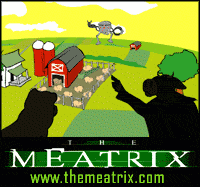
|
| Home | Reading Room | Newsletter | Reminders | Technique | Nursery |
| News | Sustainable Gardening | Trees & Shrubs | Flowers | Composting | Soil |
| Shopping | Tools | Books | How To's | Practical Advice | Children | IPM |
|
Home
Introduction to Sustainable LivingWhy should I make a choice for a sustainable lifestyle? Current human activity, through its wasteful and inefficient use of natural resources, has the potential, if left unchecked, to inflict permanent damage to the capacity of the planet to support future societies and plant and animal life.Problems are emerging on a global scale, e.g.
While these problems are global in scale, action must be taken at all levels, i.e. world wide, at continental, national, regional and local levels and by individuals. We must think globally and act locally. Development must not deplete the natural resource base - this is particularly important for Ireland. The link between economic growth and increased environmental pressure must broken. Sustainable development considerations should be taken into account in every policy and action. The national and international framework to facilitate the change has been put in place and is continuously being updated and refined to reflect emerging needs.
What is "sustainable development"? The term "Sustainable Development" reflects the interdependence of environment and development in the pursuit of a better quality of life for everyone. Sustainability requires the present generation to leave the environment in as good, or better, condition that it found it. Development recognises that human living, material well-being and economic activity must continue and grow. While these activities unavoidably have some impact on the environment, sustainable development policies seek to manage and control them as to respect the environment and use natural resources in a sustainable way. The term "sustainable development" has been in use since the early 1970s. It has survived because both developers and environmentalists now realise that there is much common ground between them. Their concerns are mutually exclusive. Perhaps the best and most understandable definition of sustainable development is that provided by the World Commission on Environment and Development in its Report - "Our Common Future" in 1987, more commonly known as the Brundtland Report: “Sustainable development” is development that meets the needs of the present without compromising the ability of future generations to meet their own needs." This definition recognises that economic activity is necessary to meet present economic and social needs while underlining the importance of maintaining the scarce and precious resources that will be needed by our children and grandchildren. Other definitions have been proposed, e.g. " improving the quality of human life while living within the carrying capacity of the Earth’s supporting eco-systems" based on recognition that "we have not inherited the earth from our parents but borrowed it from our children" in "Caring for the Earth; a Strategy for Sustainable Living", a report published by the World Union for the Conservation of Nature (IUCN); the United Nations Environment Programme (UNEP); and the World Wildlife Fund (WWW) IN 1991. A question of balance The problems arise in choosing between what we need and what we desire. We need a clean and safe environment, we want an increasing array of consumer goods and services. How we produce and how we consume resources at present places a heavy burden on our environment and affects our quality of life. The difficult, but not impossible, task facing us, in partnership with all concerned, is to find more environmentally friendly and socially sustainable ways of living and working. Sustainable development seeks a balance between social and economic development and environmental protection, so that human activity does not undermine the long-term productivity of supporting eco-systems. A question of integration Integration of environmental considerations into other policies is widely acknowledged to be a key means of securing this balance. Recognition of this underpins Ireland’s national approach to sustainable development strategy and informs the mechanisms and structures through which the attainment of strategic objectives is being pursued. Change of lifestyles is an evolutionary partnership The pursuit of sustainable development is not the sole responsibility of Government or any particular organisation or individual. The solution must be a partnership arrangement. It is also international experience that the process of change is an evolutionary rather than revolutionary process . In preliminary calculations by the UCD Environmental Institute, based on a standard methodology, the average size of Ireland’s ecological footprint is 2.38 hectares per person, or a total of 86,325km2 - some 1.23 times the size of the State (70,394km2). Features such as low population density and a high percentage of productive agricultural land have allowed Ireland to retain a relatively small footprint for a developed country. However, as this preliminary footprint measurement includes only four categories of domestic consumption (ie fossil fuels, built-up land, food and forestry), the results may be regarded as presenting a conservative illustration. Given that substantial socio-economic development needs remain, ecological footprinting provides a means of demonstrating the importance of sustainable development considerations in relation to lifestyle and consumption patterns. What can I Do? Are you willing and prepared to join this partnership towards sustainability? In other words are you willing to make the choices for a quality and sustainable lifestyle?
|
| Reading Room | Trees and Shrubs | Flowers | Composting | Soil | Nursery |
| Shopping | Books | Tools | News | Internet Gardening | Links | Support |
| Vermicomposting | Pest Management | How To's | Practical Advice | Children |
| Home | Newsletter | About Us | Support | Contact |
|
GardenSimply.com | All Rights Reserved 2005 |
|
FREE
Garden Journal!! Join "Garden Notes" and plan for Harvest
Success as you track and record your gardening progress. Your Free Personal
Garden Journal includes printable pages making it easy for you to:
|
|
|
|
|
|
|
|
|
|

|
|
|
|



